Hollywood & Spine Archive: Raiders of the Lost Book
An overview of the novelization to RAIDERS OF THE LOST ARK, originally published in June 2021.
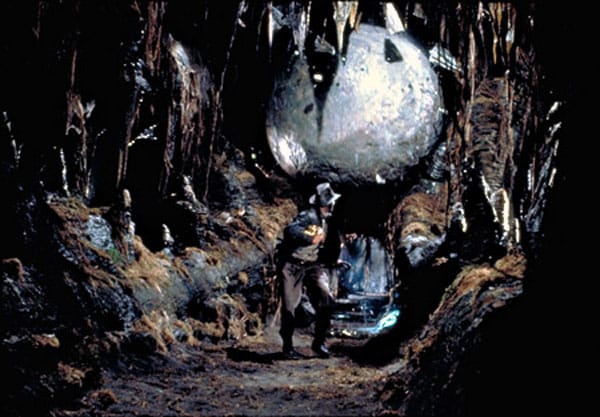
The Indiana Jones series is responsible for the best and one of the worst filmgoing experiences of my life. (This is immaterial to quality, let's get that out of the way.) The best was in 2006, when the South Orange Performing Arts Center opened up not far from Seton Hall University, my alma mater, and spent the first weekend sending 35-millimeter prints of classic movies to the five-screen movie theater therein and charging $1. Seeing Raiders of the Lost Ark with an audience after many times on TV and video was a religious experience. On the other side of the coin, going to see Indiana Jones and the Dial of Destiny with friends last summer in New Jersey was a later-night screening of a too-long film that was waylaid when someone pulled the fire alarm in the mall that the movie theater was part of. We evacuated and eventually reloaded back in once no threat was determined, but absolutely missed part of the film. So by the end of it, I couldn't really determine whether or not it was "good" and didn't get home until around 3 a.m.; I went and saw it again the next day and had my answer, and...well, that's for another essay. (originally published 6/11/2021)
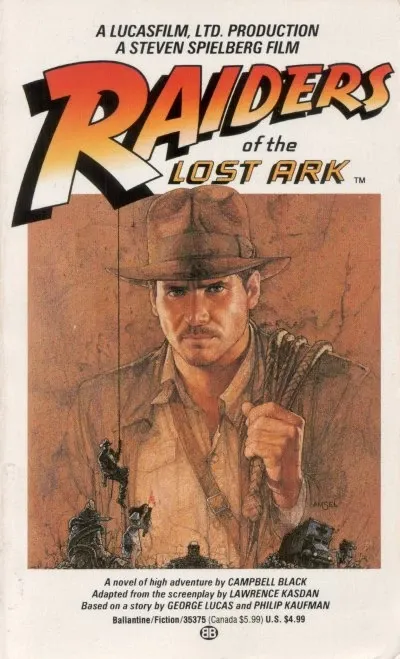
Raiders of the Lost Ark by Campbell Black (adapted from the screenplay by Lawrence Kasdan, based on a story by George Lucas and Philip Kaufman) (Ballantine, 1981)
The pitch: the inaugural adventure of Indiana Jones, a college professor/adventurous archaeologist in the early 20th century. In the film that spawned a still-ongoing franchise, he's tasked to find the legendary Ark of the Covenant before a cadre of Nazis do.
The author: Scottish author Campbell Black (1944-2013), sometimes credited as Campbell Armstrong, was a writer of political thrillers but had a few novelizations to his credit as well, including Black Christmas and Dressed to Kill.
The lowdown: There was a semi-surreal image of Indiana Jones in my head as I read Raiders of the Lost Ark - that of legendary comic artist Jim Steranko's original concept paintings of the character. The visage is mostly as you remember: square jaw, wide-brimmed fedora, creased leather jacket. But there's also a swagger that feels a little out of place as he stares into the desert or punches an adversary's lights out. It's certainly a huge part of the character we know, but not nearly all of it.
Indeed, it took some time for Indiana Jones to become who we adore, four decades later. Co-creator George Lucas saw him as a debonair playboy, while Lucas' friend and collaborator, director Steven Spielberg, wanted him to have some imperfections - perhaps a bad streak of drinking or gambling. Lucas didn't want to over-depend on his American Graffiti and Star Wars co-star Harrison Ford when Spielberg suggested him for the role - but when the pair prepared to offer Indy to Tom Selleck, CBS caught wind of it and decided to order his Magnum, P.I. pilot into series.
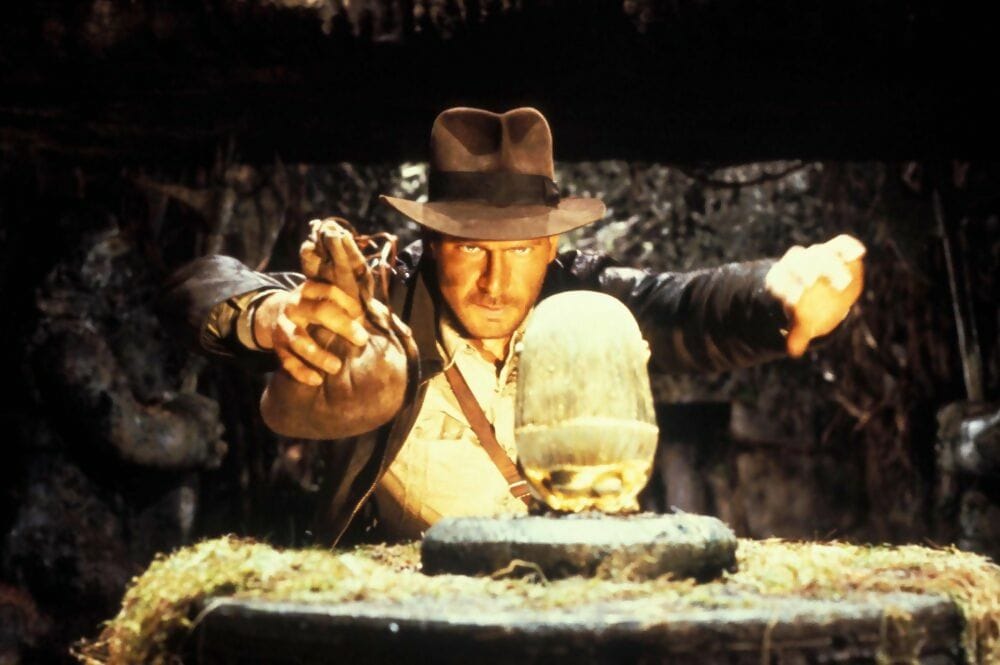
Of course, Ford - with input from The Empire Strikes Back screenwriter Kasdan - knew how to play the role: charming, sure, but far from perfect. He never lost his hat, but he sure hated snakes, and the strongest punches could knock him off his feet. (Watch talk show clips of Ford addressing Indiana Jones sequel rumors in the 21st century versus his lackadaisical, weed-hazed discussions of Star Wars. This is the character he loves, not Han Solo.)
With all that wisdom Ford brought to the role, it's easy to fear that the Raiders novelization - like George Gipe's mirror-universe take on Back to the Future - would be an approximation of the film's panache. And while Black's novelization doesn't match the crackerjack tone of the original film to a tee, what we're left with is a satisfying read that's as breezy as the source material.
It should first and foremost be noted that this tonality is, in part, an accident, as Black discussed in a 2002 interview:
I wrote Jones as I saw him. An adventurer, yes, but I always felt there was a slight melancholy side to him. I don't think Lucasfilm really approved of this, but from my point of view I couldn't write the novel if I had to base it on the character in the script - I found him shallow and shadowy, all action and no thought, and I wanted to add some kind of internal process to him, which I think I did. Up to a point. I couldn't write straight comic book, which was how the script read to me. Let me give you example that I think suggests the tone of future Jones books. In my original manuscript, I referred to Indiana Jones as Jones all the way through. The one editorial change that was made was the change from "Jones" to "Indy." Clearly, the filmmakers were thinking of a more approachable more chummy character, than the darker Jones who appealed to me. They were right, of course, because they were market-oriented, and I wasn't. Not to that extent anyway. To me it seemed to reduce the character to call him "Indy" instead of "Jones."
To this writer, Black is overselling that darkness. His characterization is imperfect in largely the same way that Ford plays him; we just get a little more internal insight, as all good novelizations offer. In the book, that melancholy spurs twofold. There's Jones' rivalry with the nefarious French archaeologist Rene Belloq - well-defined as a slimier, "shadowy reflection" of our hero whose history of one-upping Indy is established throughout, from an award of merit he cheated his way into in their graduate years to recent capitalizing off Indy's hard work as a searcher of rare antiquities. We get our fair share of time with Belloq in the book: his sense of superiority over the Nazis, his ability to cozy up to Hitler (whose presence is implied in early expository scenes but never formally introduced) and his passion for the Ark as a calling.
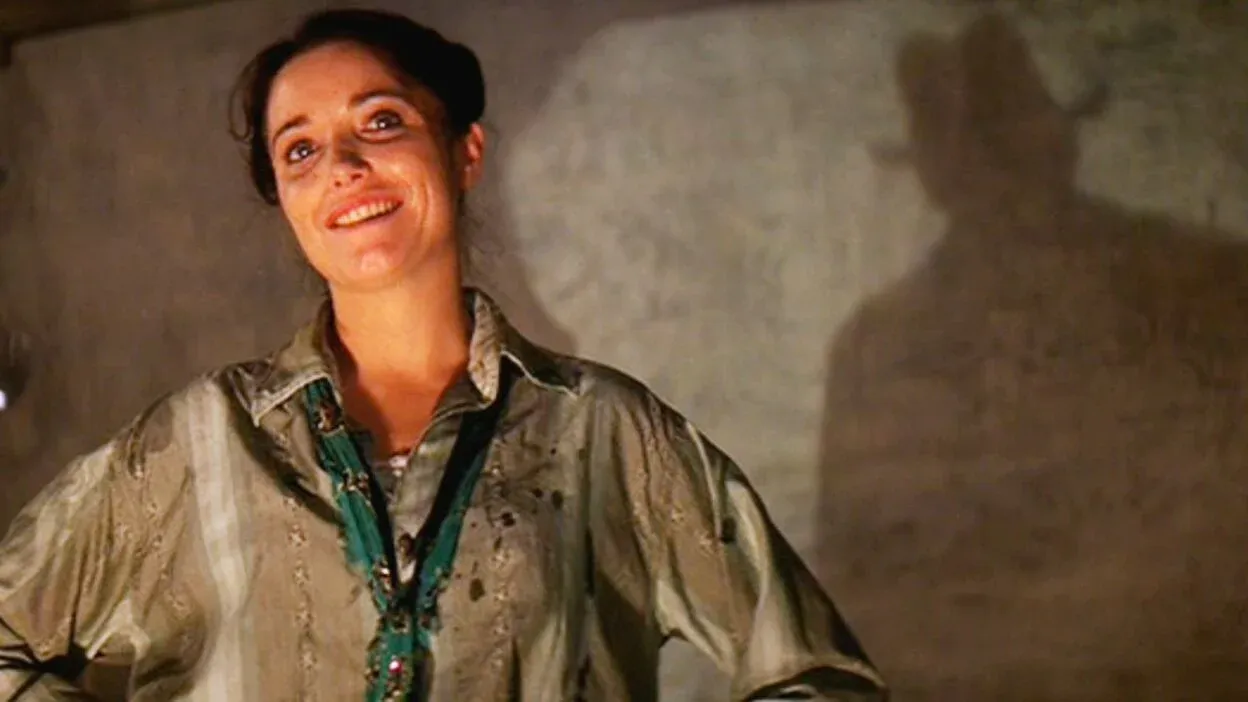
Black also fleshes out Indy's fiery repartee with former (and future) lover Marion Ravenwood. Already a spunky, Howard Hawks-ian brawler in the script who could drink you under the table after enrapturing you with a gleaming eye (all hail Karen Allen's lively performance), the book's Marion has that same sense of character with an edge of her own; for instance, it's implied that her time bartending in Nepal also involved some other moneymaking activities she's not proud of - and her fire burns deep at the memory of Jones' romantic betrayals. (The novel doesn't exactly sidestep the grotesque implications of Indy and Marion's affair - she's 15 while he's 28 - and kind of goes one step further by showing Jones taking the company of a wayward coed named Susan when Brody visits him at home after they discuss the Ark with the U.S. Army intelligence.)
The devil in the details: Ick factor aside, these relationships make Raiders in prose feel real - more so than the action, which is well-written but streamlined to the point of feeling like one very quick roller coaster. The book is half done shortly after Indy and Marion arrive in Cairo, and never mind more detail - there are plenty of well-known points from the film that don't turn up in the book. There is no swordsman for Indy to shoot, he doesn't climb underneath a supply truck to secure the Ark, Marion doesn't attempt to escape the Nazis by getting Belloq intoxicated, and the treasure's eventual opening is swift. (One of the supporting villains, the black-clad Gestapo agent Toht, is killed off in the book when his jeep goes over a cliff during the truck chase, so there's not even a literary version of a face melting off.)
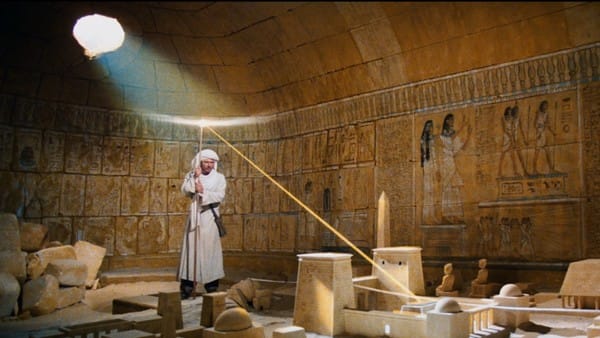
The trade-off is some extra character moments and other ephemera: a clumsy attempt by Indy to woo Marion the night they arrive at Sallah's home in Egypt, tense exchanges between Belloq and Nazi commander Dietrich - and even an explainer of how Indy was able to escape detection chasing the German submarine carrying the Ark. (It turns out he lashed himself to the periscope with his trusty whip, but lost both it and - shocker! - his signature hat in the process.) There's also what we now know as a canonically incorrect detail - that Jones' love of the whip came from seeing a circus act as a child - but Black had no way of knowing what these sequels would establish.
The last word: Raiders might be one of the better "first pass before the film" novelizations we've covered here. It's got deviations, but the DNA of the good Dr. Jones is largely intact - and re-reading it after experiencing the movie once more (one of the better flicks you can catch in a theater, for any generation), it's a great keepsake of some great celluloid memories.
